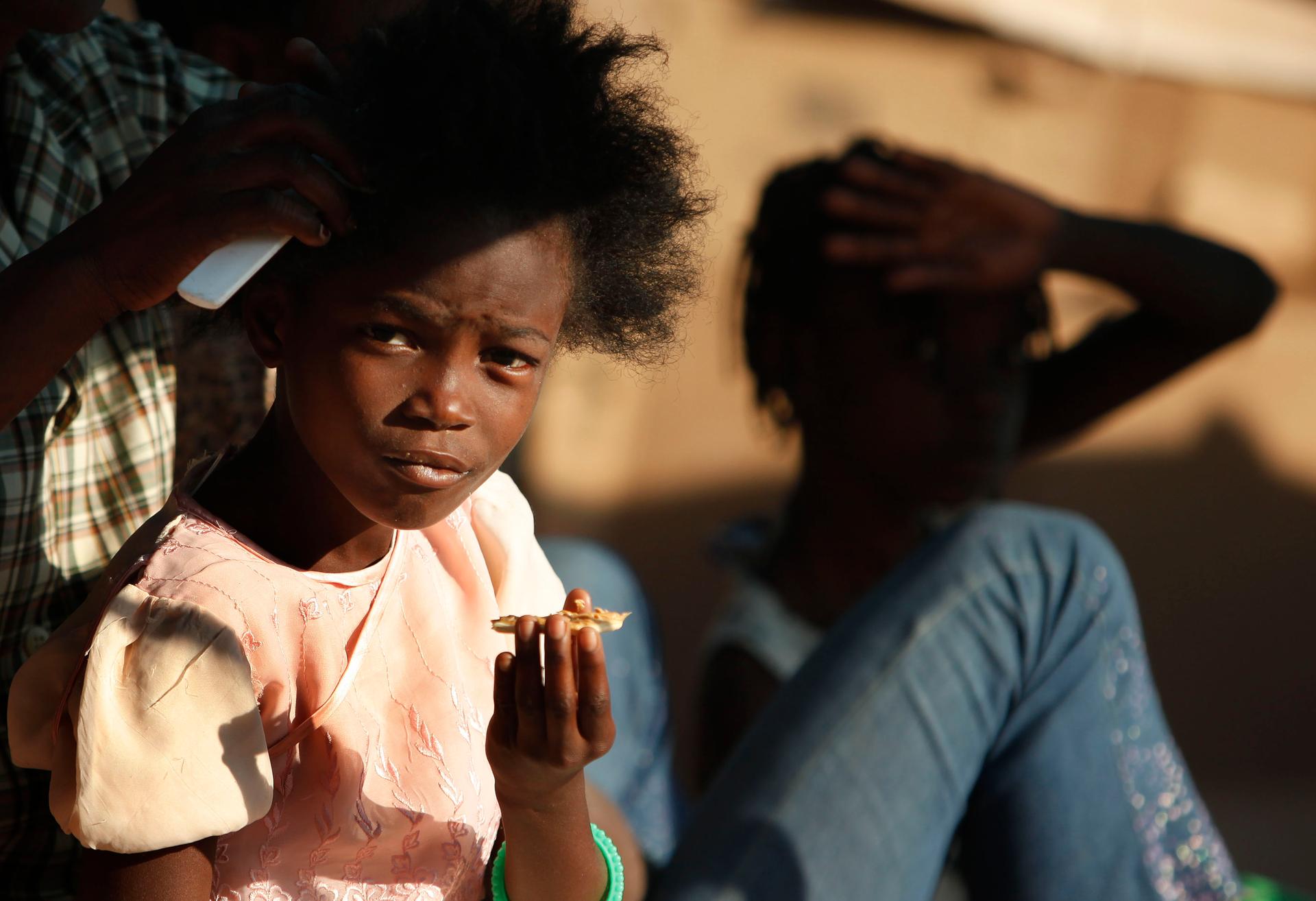The US wants to give peanuts to malnourished Haitian kids. Why is that a problem?
A child eats peanut butter on a cracker inside a shelter in Port-au-Prince, the Haitian capital.
What's wrong with giving peanuts to children in need?
For those unfamiliar with Haitian history and agriculture, the recent uproar over US Department of Agriculture plans to give 500 metric tons of peanuts to malnourished Haitian schoolchildren might be puzzling.
Here’s what it’s about.
In March, the USDA blogged in a chipper post that it had “crafted a deal” to acquire surplus peanuts from American farmers and donate them to Haiti.
It provoked hate mail.
Haitian peanut farmers and manufactures were mad. So were Haitian agronomists, citizens concerned about the country’s future, and dozens of Haitian and foreign NGOs.
Oxfam, Partners in Health, the Institute for Justice and Democracy in Haiti and others sent out letters of protest. Partners in Health accused the US of "flooding local markets with outside crops." Some referred to history, especially what happened to Haiti’s rice crop in the 1980s and 1990s.
Before then, the vast majority of rice eaten in Haiti was grown there. Then, under US pressure, tariffs were reduced, opening the doors to imports. That move almost destroyed the Haitian staple crop. (Bill Clinton later apologized for the role he played in that decision, as president).
Still, the peanut donation is only 500 metric tons of peanuts to schoolchildren, a far cry from hundreds of thousands of metric tons of rice that flooded in decades ago.
But some critics say a market flood can start with a modest set of donations. It’s hard to prove this is the case, but many agronomists, Haitian peanut farmers and NGOs don't want to take the risk.
Alexis Taylor, the USDA’s deputy undersecretary for farm and foreign agricultural services, disagrees. For her, the malnourished children take priority. When I ask her about the critics, she says, “I would encourage them to go to Haiti and speak to the families that I spoke to, and see the children that are getting the food. … It is about supporting a very vulnerable population, and that’s the crux of it. It is not about getting rid of really a small portion of peanuts that the US government was holding. It’s about an emergency need.”
Critics like Partners in Health are well aware of the malnourishment problem in Haiti. It’s one reason the organization built a nutritional peanut butter factory there, in part to supply their hospitals. They are among several organizations and funders — including some from the US government — working with all levels of the Haitian peanut supply chain to improve yield and quality control to get more Haitian peanuts to market and to those in need.
Right now, critics of the donation might be losing this battle. Their recent petition on the White House website was closed, having failed to receive enough signatures in the allotted time.
Taylor says the donation is being made, and the shipment will take place before school starts in the fall.
But for optimists among the critics, the strong response to the USDA announcement displayed growing force behind efforts to defend national production in the face of the ongoing threat of cheap — or free — imports.
Update: The delegation to the US Congress from Massachusetts has sent a letter to the State Department opposing the aid. Read it below.
Every day, reporters and producers at The World are hard at work bringing you human-centered news from across the globe. But we can’t do it without you. We need your support to ensure we can continue this work for another year.
Make a gift today, and you’ll help us unlock a matching gift of $67,000!
